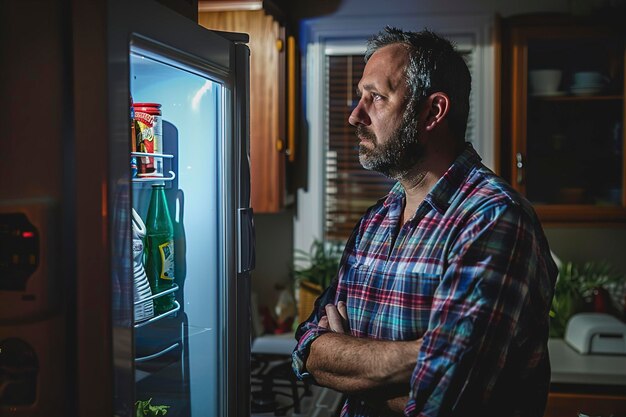The Complete Guide to Disposing of Your Old Refrigerator Responsibly
The lifespan of a refrigerator can extend well over a decade, faithfully chilling your food and drinks every single day. But like everything else, the time eventually comes to say goodbye. Whether your trusty appliance has finally broken down or you’re simply upgrading to a more energy-efficient model, understanding how to properly dispose of your old refrigerator is crucial. With numerous environmental regulations and disposal options available, it can be overwhelming to navigate this process. Let’s dive into the essential steps and best practices for disposing of your refrigerator responsibly.
Understanding Why Proper Disposal Matters
The Environmental Impact
Refrigerators contain several substances that pose environmental hazards if not handled correctly. Freon and other refrigerants, commonly found in older models, contribute significantly to ozone depletion and global warming. Proper disposal ensures that these chemicals are safely extracted and recycled.
Legal Requirements
Many regions require specific disposal methods due to the harmful materials found in refrigerators. Adhering to local laws is not only mandatory but essential for minimizing environmental impact. Failure to comply can result in fines or legal repercussions.
Recyclability
The good news is that refrigerators are highly recyclable. Almost 90% of their components, from metals to plastics, can be processed and reused, reducing landfill waste and saving resources.
Steps to Dispose of Your Refrigerator
1. Evaluate the Condition
Before disposing of your refrigerator, assess whether it might serve another purpose. If it’s still functional, consider donating or selling it. If you’re planning to discard it due to technical issues, repairs might be an alternative worth exploring.
2. Check Local Regulations
Research your local guidelines on refrigerator disposal. Laws and capabilities can vary significantly by location, so knowing the rules in your area saves time and ensures compliance.
3. Explore Disposal Options
Donation and Resale
If the fridge is operational, donating or selling can extend its life and help someone in need. Many local charities and secondhand stores accept working appliances. Social media marketplaces can also be an effective platform for resale.
Professional Recycling Services
Most cities offer specialized companies or services dedicated to appliance recycling. These professionals are trained to handle and recycle refrigerants safely, and they often repurpose raw materials for new products.
Municipal Waste Programs
Check if your local waste management services offer refrigerator pick-up or drop-off programs. Many municipalities provide curbside pick-up services specifically for large appliances.
Trade-In Programs
If purchasing a new refrigerator, many retailers offer trade-in programs. They may provide removal of your old appliance, sometimes at no extra cost or even at a discount towards the new purchase. This can be an efficient and cost-effective solution.
4. Prepare Your Fridge for Disposal
Before moving your fridge, take these preparations:
Unplug and Clean: Defrost the fridge, clean it thoroughly, and ensure it’s unplugged well in advance.
Secure Loose Parts: Make sure all shelves and compartments are secured to prevent damage or injury during transportation.
Tape Doors Closed: Secure doors shut to make handling easier and to prevent any accidents.
Benefits of Responsible Disposal
Environmental Preservation
By ensuring your refrigerator is disposed of properly, you significantly reduce the release of toxic chemicals and greenhouse gases into the atmosphere.
Resource Efficiency
Recycling components conserves raw materials and energy, reducing the demand for new resources and lessening environmental strain.
Community Support
Selling or donating a functional refrigerator provides a valuable resource to someone else, promoting community sustainability and support.
Common Mistakes to Avoid
Dumping at the Landfill
Simply dumping your old fridge at the landfill might seem like an easy option, but it's environmentally damaging and often illegal.
DIY Disposal of Refrigerants
Attempting to remove refrigerants yourself is dangerous and usually unlawful. Certified professionals have the equipment and knowledge needed to do this safely.
Ignoring Local Laws
Don’t overlook regional disposal regulations. These ensure that hazardous materials are managed properly.
Quick Reference Summary: Essential Refrigerator Disposal Steps
🗒️ Evaluate: Determine if the refrigerator can be reused, donated, or resold.
🔍 Research: Check local disposal laws and regulations.
♻️ Consider Options: Donation, professional recycling, municipal programs, trade-in.
🧹 Prepare: Clean, unplug, secure, and tape doors before moving.
🌍 Benefits: Protects the environment, conserves resources, supports the community.
Final Thoughts
Disposing of a refrigerator involves responsibility and awareness of both environmental and legal aspects. By following these comprehensive steps, you can ensure your old appliance is discarded in an eco-friendly and lawful manner, contributing positively to your community and the planet. With proper disposal planning, everyone wins as resources are conserved, habitats are protected, and communities are strengthened. Ready to say goodbye to your old fridge? Let these guidelines be your go-to resource for disposing responsibly!

